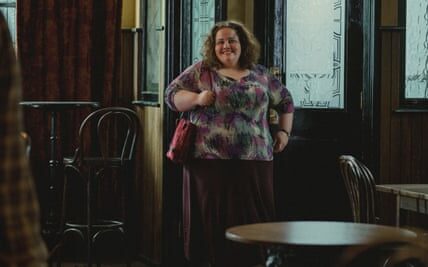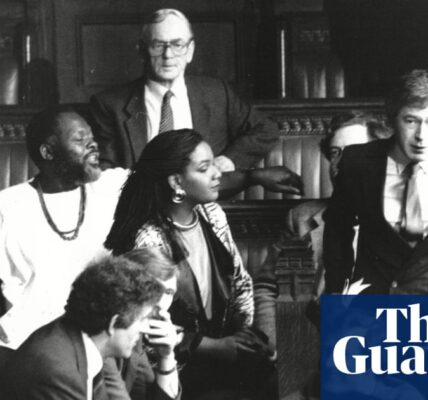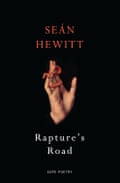‘A literary voice for the ages’: Paul Auster remembered by Ian McEwan, Joyce Carol Oates and more
Ian McEwan: ‘Our supreme postmodernist’
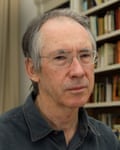
British novelist
The exquisite chapter of domestic accidents that opens Paul Auster’s final novel, Baumgartner, leaves us with a microcosm of all that drew a worldwide, discerning readership to this super-abundantly gifted, big-hearted novelist: a limpid present tense; a subtle awareness, comic as well as tragic, of what Virgil identified as “sunt lacrimae rerum” – there are tears in the nature of things – which, in Paul’s version, proposed pratfalls as well as death; a perfect expression of a hovering consciousness in the still moment; and finally, a honed prose that seemed to hint that just below its surface were instructions on how to read it and how it was written. The adroit self-consciousness of his writing made him our supreme post-modernist. If his imagination seemed so spacious it was because he was as much a European as an American writer. If he had Thoreau at his back, he also had Beckett. It is possible to cross a Paul Auster Platz and walk down a rue Paul Auster. Not many novelists have been so honoured. As a presence he was ridiculously handsome, worldly, generous, funny and, unlike most great talkers, a highly attuned listener.
Joyce Carol Oates: ‘He was a monumental literary presence’

American writer
Paul Auster was an anomaly: a thoroughly warm, witty, sympathetic, laughter-loving individual, with insatiable intellectual curiosity and a gift for friendship; at the same time, he was a monumental literary presence, somewhat intimidating for the zeal with which he immersed himself in his writing, near-overwhelming in the abundance of his creative energies.
Within a few minutes you might find yourself discussing a particular author’s inimitable prose, and then, like the flaring of a match, you were off and running. All other subjects faded away. Indeed, the last time we did an event together, just two of us on a panel at the fabled Brooklyn Book festival, whatever the subject was supposed to have been, Paul and I talked nonstop about Stephen Crane, happily quoting his sentences to one another.
Paul wrote many brilliant works but I feel that I must mention two I particularly admire. Firstly, Burning Boy, his biography of Crane, which looms large among the great literary biographies of the past decades – literally, at 800 pages, and luminous, a truly extraordinary portrait of a fellow writer by another, entirely different sort of writer. Paul’s poignant memoir of his father, The Invention of Solitude, is a beautifully poetic work, a meditation upon the very limits of language and our ability to know one another.
Robert McCrum: ‘We have lost a passionate, gentle, wise, and noble soul’
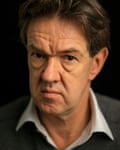
British writer and associate editor of the Observer
It’s hard to believe that Paul Auster, who seemed forever young, has just entered the pantheon of American letters, and so memorably on May Day. To me, he has always been a mix of Puck and Ishmael, at once playful and fateful, but never less than a tangible voice and presence, even when offstage. Somehow, it’s as if a writer, who always shaped his story as he wanted, has lost control of the narrative-line.
I first met him when his New York Trilogy had just been published in the UK. Auster was a romantic figure married to another notable contemporary, the writer Siri Hustvedt, his beloved and ethereal muse, both equally blessed with a gift for friendship. This was the 1980s, an age of irrational exuberance. With their daughter Sophie banging her spoon in her high chair, this family seemed like the privileged inhabitants of a brave new world.
New York and its suburbs was Auster’s turf, immortalised not just in his fiction but also in movies like Smoke and Lulu on the Bridge. His conversation, inflected with the accents of the street, and refracted through the academy, flowed like the thrilling dialogue of a novel-in-progress.
In person, and on the page, Paul was a natural raconteur. Few writers I’ve ever known could command his appearance with such a spell-binding grasp of an audience. Even fewer possessed his mastery of voice and story, a universal gift: in America, he was an uber-cool easterner; in France, half French; in Britain, the face of a certain avant garde.
If that seemed effortless and natural, and all of a piece with his persona, it also concealed Auster’s lifelong dedication to the art of prose fiction. I know, indeed, that he continued to write throughout the final days of his tragic endgame. As an artist, his circle encompassed many great performers and auteurs of stature, including magicians and poets. As a writer, his models, whom he spoke and wrote about as friends, included Edgar Allan Poe, Stephen Crane and Samuel Beckett, the enigma he’d known in 1960s Paris. This was his preferred society. On our last outing together, we went on a pub crawl through places some of his favourite writers had spent time: Gough Square (Dr Johnson), and Bunhill Fields (William Blake), and Poet’s Corner (Alexander Pope).
Every folio of his next manuscript was a kind of homage to these mentors. Like all great writers, he never ceased, in Auden’s numinous words, “communing with the dead”.
I can hardly believe that he is now in their company. America and the world has lost a passionate, gentle, wise, and noble soul, a literary voice for the ages.
after newsletter promotion
Colum McCann: ‘He was quite extraordinary’

Irish novelist
On 19 August 2022, Paul Auster gathered with a dozen other writers for a PEN event in support of Salman Rushdie, who had been viciously stabbed a week earlier. Paul stood on the steps in his customary black, his grey hair swept back, and read, with great verve, Rushdie’s words about the importance of novel-making in the poisoned narrowness of our times.
One of the things that Paul always stood for was the ability to think concretely and sympathetically, contrapuntally, about the world within, in order to also acknowledge the wider world around us. We must understand the lives beyond our own. Open the curtains. Unlock the coordinates. This happens, Paul suggested, within the labyrinthian nature of storytelling.
I recall reading his early novellas – it felt like he was splitting open the atom. A street in Brooklyn swept itself out to the rest of the world.
And Paul himself was quite extraordinary. His laugh wasn’t just explosive, it was embracing. Those dark eyes were often described as hooded, and indeed they were, but they also worked as umbrellas. Come in under here. Stand a moment with me. Let’s watch the rain and maybe even make sense of it.
One of the things I will recall the most was his sense of solidarity on that day of the PEN event, just two years ago, when he stood up for Salman and said to the man who lay beyond in a hospital bed: “I love you as a brother and treasure the friendship we have built together for the past 30 years.” Earlier that morning Paul was in a room in the library getting ready for the readings alongside his wife Siri. We were chatting about the terrible events, and Paul turned slightly, caught us with those eyes and said: “But you kill off the closed mind with the open one.”
One of the beauties of literature is that it remains with us even beyond death, and the thing we can celebrate is that we will have Paul’s words still speaking to us down through those years yet to come.
Benjamin Markovits: ‘He conveyed the intensity of ordinary life’

British-American novelist
I first read the New York Trilogy while staying at a downtown hotel in São Paulo by the side of a dingy rooftop swimming pool. It was summer and hot and very bright among all the skyscrapers but you also had a sense, somewhere a long and noisy way below, of life operating at a totally different scale. Book and cityscape seemed to match, Auster’s lucid, simple prose and the very unsteady narrative ground underlying it. He was famous of course for his metafictional detective games, but what stuck with me wasn’t the meta part, but the fact that those games allowed him to convey the intensity of ordinary life, especially ordinary loneliness. Like detectives, we live by our almost obsessive attention to details, bathroom trips, worries about money, who said what to whom.
His latest novel, now his last, Baumgartner, is about a widower who tries to reconstruct a meaningful life for himself after his wife’s death: “For the first six months he lived in a state of such profound confusion that there were times when he would wake up in the morning and forget that Anna was dead.” But that confusion is also a source of comfort if not of hope. It is a moving bookend to a brilliant career.
Sinéad Gleeson: ‘He played with ideas of coincidence and doubling’

Irish author and artist
In the autumn of 2013, I was presenting a Book Show for RTÉ radio and my producer and I went to New York, armed with a dizzying schedule of people to record. Our last interview of the first day, as jetlag started to kick in, was Paul Auster. We had been invited to the Brooklyn brownstone he shared with his wife, Siri Hustvedt. Over the course of a couple of hours, we wandered around, marvelling at their book collection, meticulously organised by theme (“That’s contemporary American fiction right there”) and the art on the walls: two Gerhard Richter pieces that were gifted to Hustvedt after she wrote essays about the artist’s work, and a piece made by a neighbour, the writer Jonathan Safran Foer, which seemed to consist largely of an antique optometrist’s kit. The inside of Auster’s house reflected the themes in his work – writing, art and ways of seeing. He believed in and played with ideas of coincidence, doubling and doppelgangers. Echoes and double exposure populate his narratives.
Although a New Jersey native, New York, its psychology and geography are indelibly stamped on his novels and screenplays. In the interview he spoke about making a pilgrimage to Dublin as a young man to follow in the footsteps of James Joyce. He spoke frankly about his writing process and showed us his beloved Olympia typewriter. Its worn keys looked suspended, as if constantly awaiting the return of his hands. That evening, we also met and interviewed Hustvedt, who I’m thinking of today with this great loss. Auster spoke of her with such love and admiration: “She’s probably the smartest person I’ve ever known and she’s essentially my only reader … it’s been a blessing”.
James Meek: ‘He was a kind and generous writer’

British novelist and journalist
The New York Trilogy is one of those thrilling, frightening works that connects us, however briefly, to a space just beyond our own, and Paul will, rightly, be forever celebrated for it. But I would also like to record what a kind and generous writer he was in person. I met Paul and Siri at the Icelandic literary festival 20 years ago, and they couldn’t have been warmer or more friendly. Paul, among a daunting roster of celebrities, vied with Margaret Atwood as the biggest name: when he read from his work at the main theatre in Reykjavik, people were crowded around the entrance, unable to get in, but trying to hear him. His reading voice was deep, hypnotic, otherworldly.
We met again over the years, but it was that week in Iceland that left the deepest impression: his incredible stamina, bringing a furious competitive energy to a writers’ football match after a long night on the wine, the freshness he brought, in an interview, to the famous story of how City of Glass came to be written – a story he must have told a thousand times – his tolerance of other people’s personal crises, including mine, and his unaffected warmth towards writers as a class, especially the younger ones coming through. He told us about a French literary initiative he’d taken part in: dozens of famous writers from all over the world were asked to nominate a young writer they admired, with the idea that the established name and the newcomer would take part in an event. After he’d made his choice, the organisers came back to him to say he was the only writer on the list who’d been able to come up with a young writer they admired. One of the people they’d asked had said: “There are no young writers.” Paul had a look of real indignation, and surprise, on his face. No après moi, le déluge for him.
Source: theguardian.com
